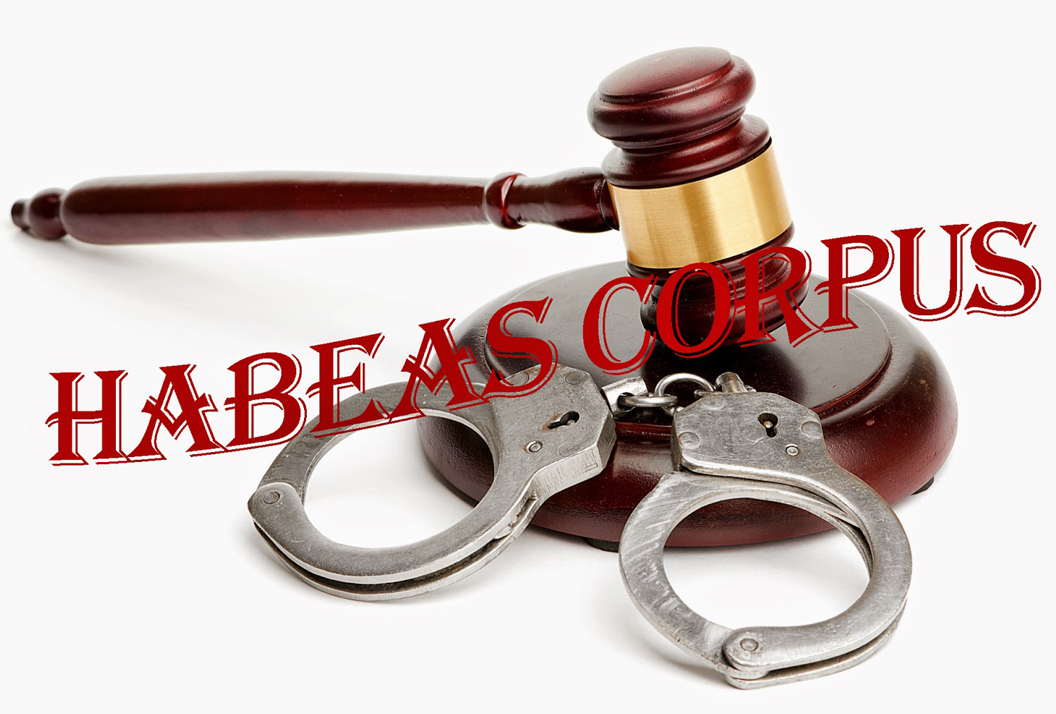We post news and comment on federal criminal justice issues, focused primarily on trial and post-conviction matters, legislative initiatives, and sentencing issues.

SUPREME COURT PETITION QUESTIONS COA UNFAIRNESS
 For federal prisoners, the last chance to argue that your conviction or sentence was unlawful comes within a year of the conviction becoming final, in a habeas corpus petition filed according to the restrictions of 28 USC 2255. Virtually all of those are denied by the district court that convicted and sentenced the petitioners, because, face it, how many people – even judges – like to admit they screwed up?
For federal prisoners, the last chance to argue that your conviction or sentence was unlawful comes within a year of the conviction becoming final, in a habeas corpus petition filed according to the restrictions of 28 USC 2255. Virtually all of those are denied by the district court that convicted and sentenced the petitioners, because, face it, how many people – even judges – like to admit they screwed up?
Appeal of a denied 2255 motion is not automatic. Instead, Congress has decreed that would-be appellants get a certificate of appealability (“COA”), granting permission to appeal on a per-issue basis, before briefing can go forward.
COAs are the key to the kingdom: you cannot appeal an order dismissing your 2255 claim without one. But a petition for writ of certiorari before the Supreme Court now asks what it means for due process and access to courts if petitioners in one circuit, are 69% more likely to get a COA issued than similar movants in another?
 The petition – filed by a Columbia Law School professor on behalf of an Alabama state inmate – contends the arbitrariness in COA rulings by appellate courts, particularly the 11th Circuit, reflects a systemic breakdown in the COA review process.
The petition – filed by a Columbia Law School professor on behalf of an Alabama state inmate – contends the arbitrariness in COA rulings by appellate courts, particularly the 11th Circuit, reflects a systemic breakdown in the COA review process.
“A lot of petitioners are pro se, and they’re not really getting reviewed anymore,” Prof. Bernard Harcourt told the National Law Journal last week. “It’s almost as if the [statutory] mechanism requiring a COA has closed the gate on federal circuit review of their habeas denials.”
Harcourt filed the petition on behalf of Phillip Tomlin, who has been in state prison for 42 years serving life without parole. The 11th Circuit denied Tomlin a COA last year on a legal question that the Court had explicitly left open in a 2011 decision, by applying “an improper, too demanding, and unduly burdensome” COA standard, the petition argues.
 Tomlin’s COA was denied by 11th Circuit Judge Charles Wilson (who grants a mere 2.7% of COAs he reviews, according to a Columbia University Law School study published two months ago). The study showed significant disparities in grant rates for capital prisoners (58%) and noncapital prisoners (8%) in the 11th Circuit. Of more concern, the study suggests that it’s a crap shoot for any COA filer. The 11th Circuit using a single judge to review COA requests, and the grant rates among those judges range from a low of 2.33% to a high of 25.8% – more than an order of magnitude.
Tomlin’s COA was denied by 11th Circuit Judge Charles Wilson (who grants a mere 2.7% of COAs he reviews, according to a Columbia University Law School study published two months ago). The study showed significant disparities in grant rates for capital prisoners (58%) and noncapital prisoners (8%) in the 11th Circuit. Of more concern, the study suggests that it’s a crap shoot for any COA filer. The 11th Circuit using a single judge to review COA requests, and the grant rates among those judges range from a low of 2.33% to a high of 25.8% – more than an order of magnitude.
The study also compared the 11th to the 1st Circuit, finding that the 11th Circuit’s 8.4% noncapital COA grant rate is far below the 1st Circuit’s 14.3%.”
The Supreme Court has ordered the State of Alabama to file a response by Feb. 24. The Court will then decide whether to hear the case.
Petition for Writ of Certiorari, Tomlin v Patterson, Case No. 19-7127 (Dec 27, 2019)
Udall, Certificates of Appealability in Habeas Cases in the United States Court of Appeals for the Eleventh Circuit: A Study (Columbia Law School, Dec 24, 2019)
National Law Journal, Have Circuit Courts ‘Closed the Gate’ on Some Inmate Appeals? (Feb 5)
– Thomas L. Root

